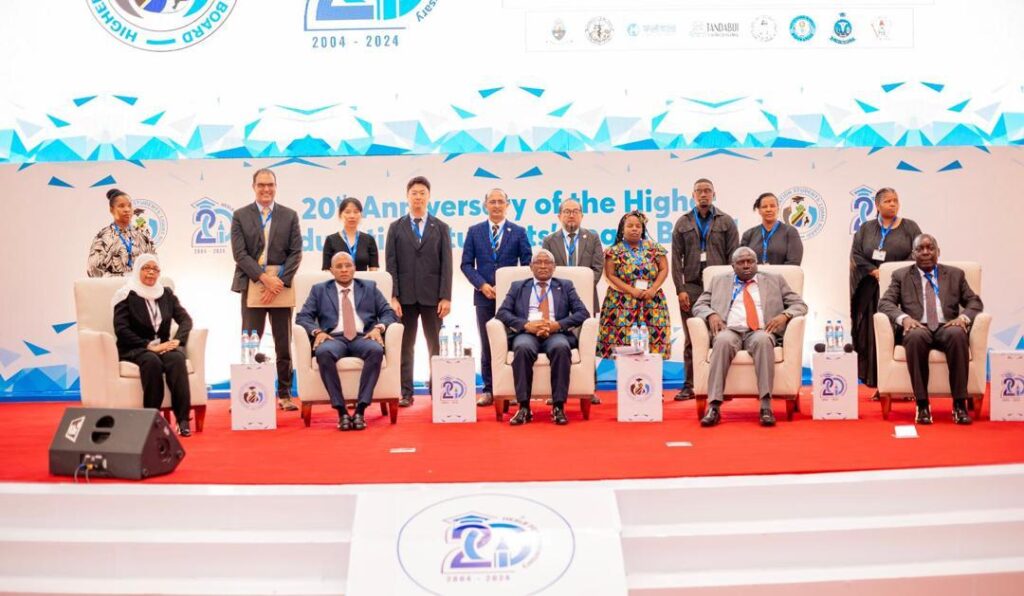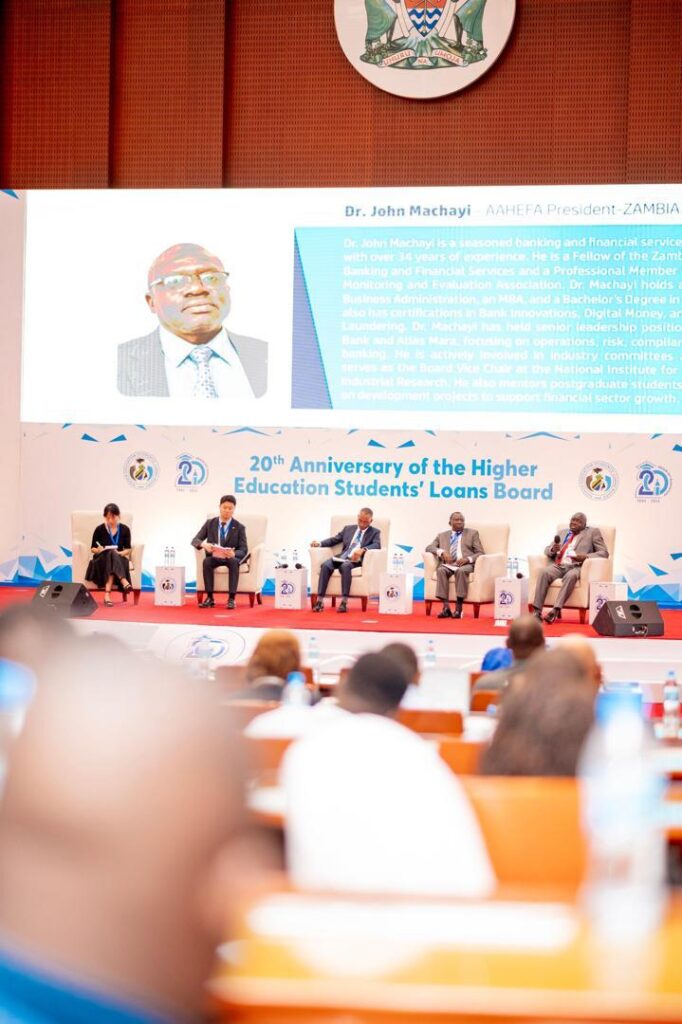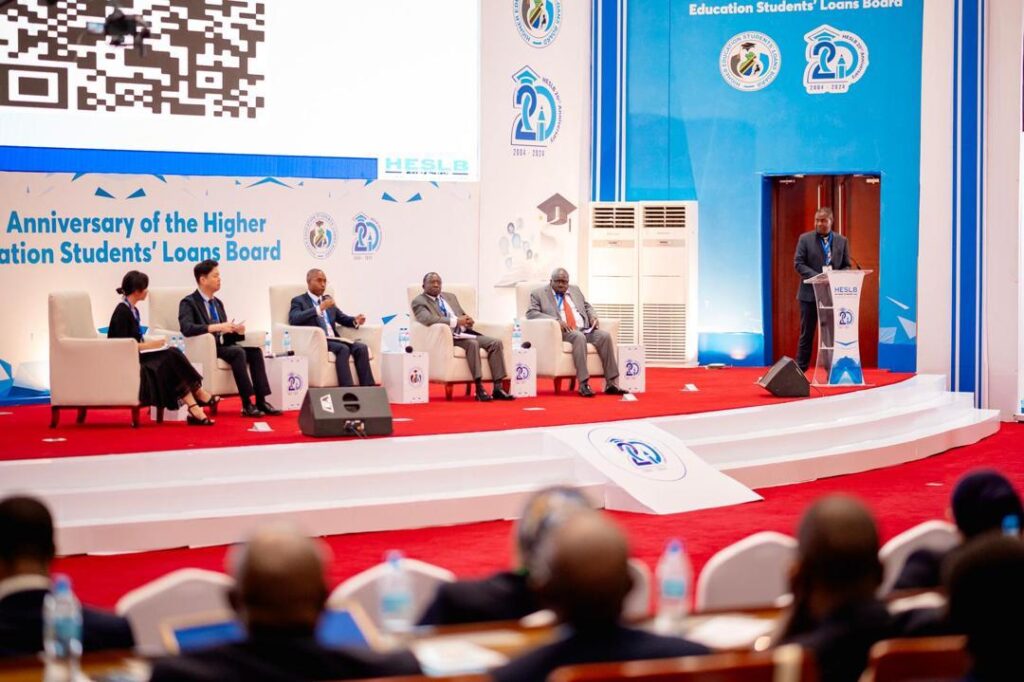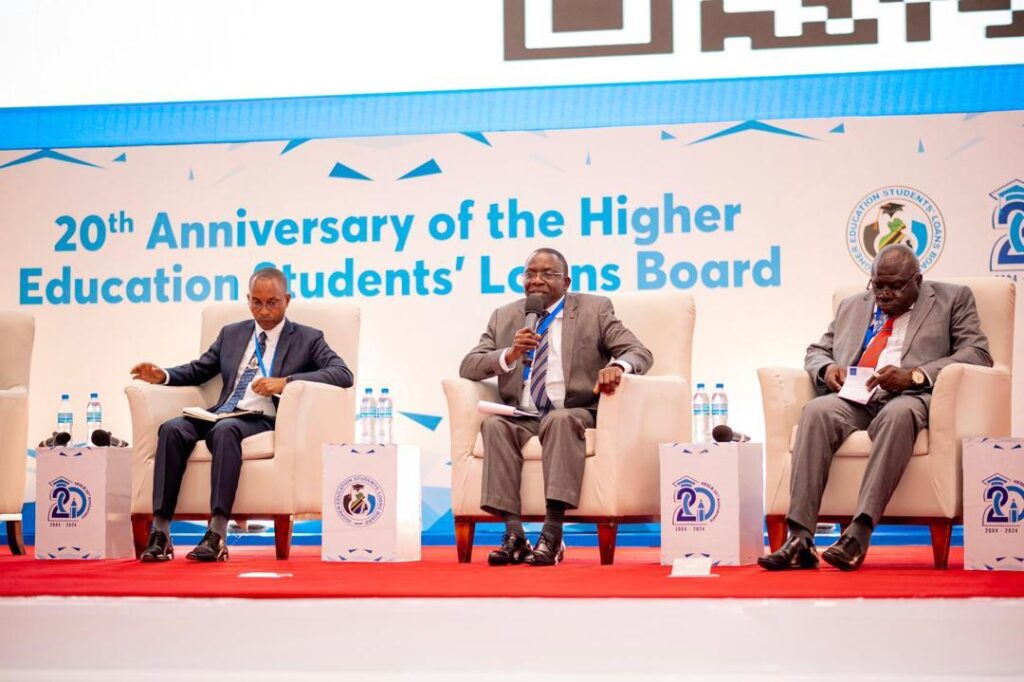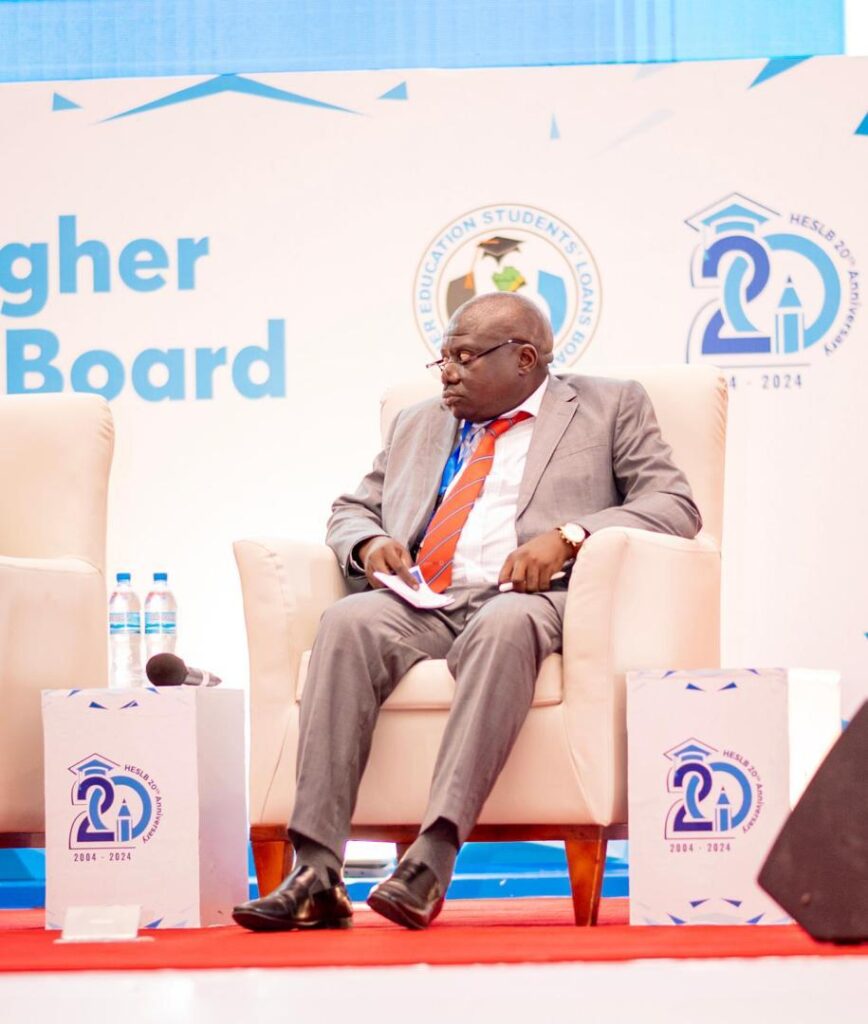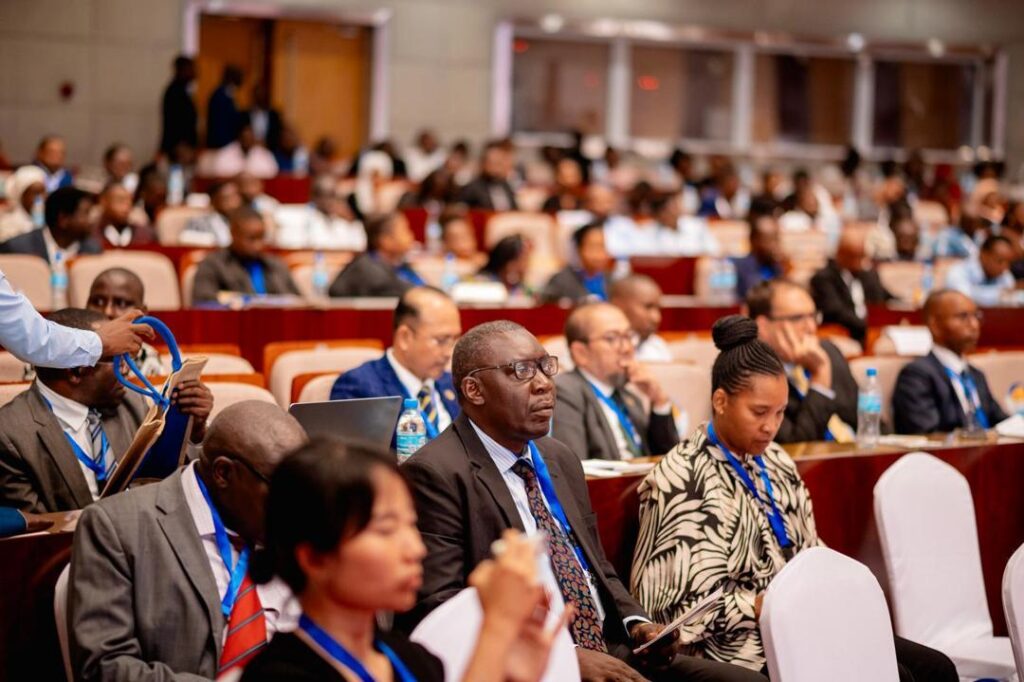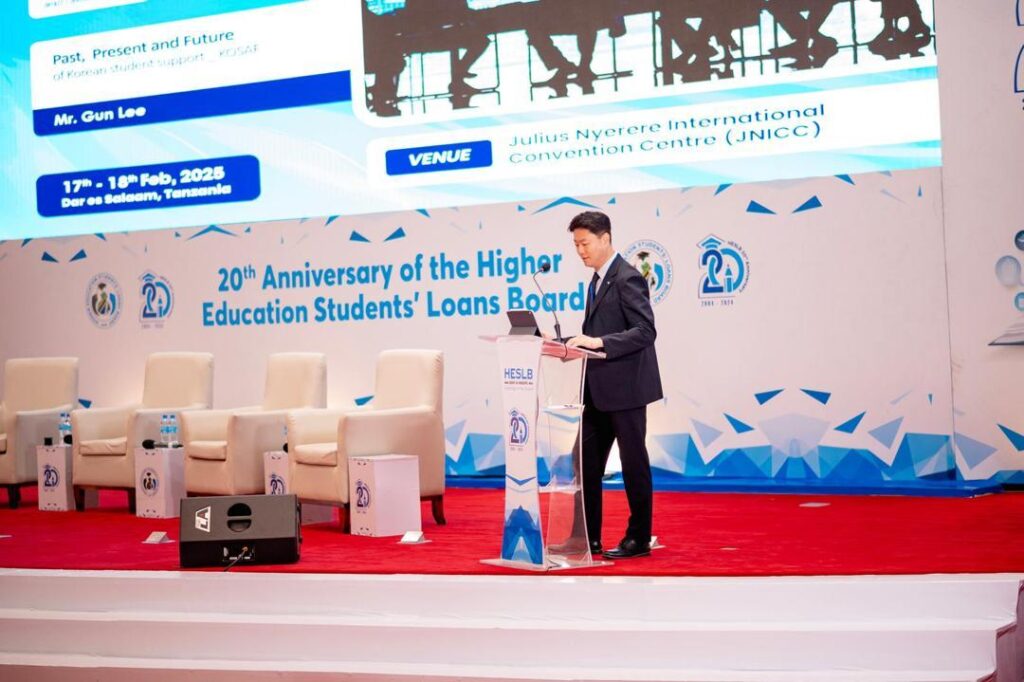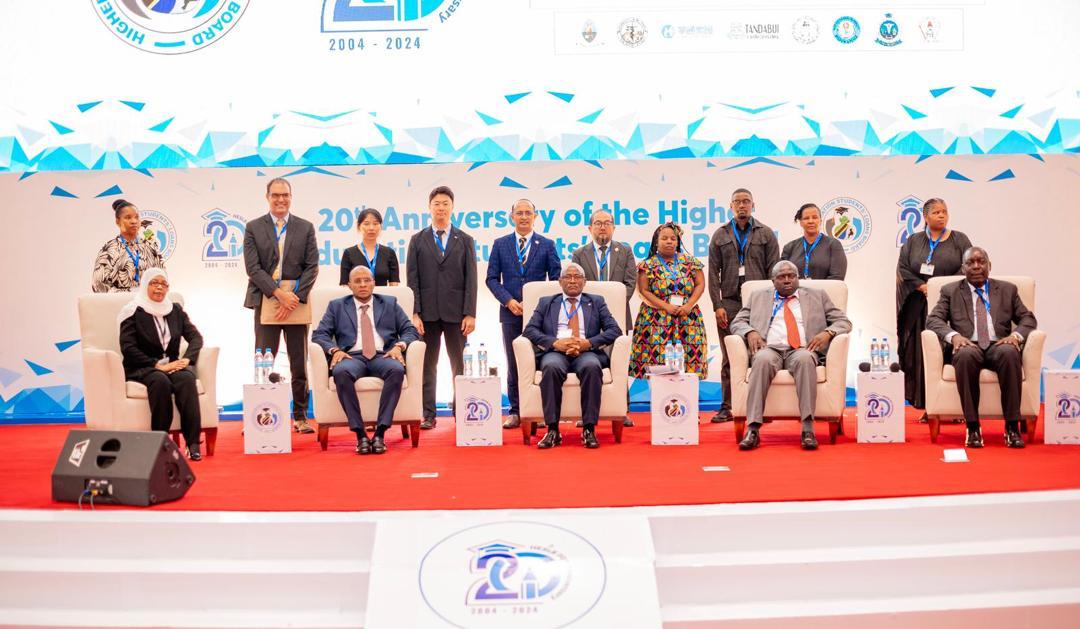Reported by: Samuel Ernest.
Date: 24th February, 2025.
Dar es Salaam, Tanzania.
Dr. John Machayi, President of the African Association of Higher Education Financing Agencies (AAHEFA) and CEO of Zambia’s Higher Education Loans and Scholarships Board (HELSB), took center stage at the 20th Anniversary celebrations of Tanzania’s Higher Education Students’ Loans Board (HESLB). The event, held at the Julius Nyerere International Convention Centre, convened policymakers, education experts, and industry leaders to discuss sustainable financing solutions for higher education, with a strong emphasis on South Korea’s Hybrid Financing Model.
During a high-level panel discussion, Dr. Machayi provided valuable insights on South Korea’s successful education financing framework, particularly the Korea Student Aid Foundation (KOSAF). He highlighted how a strategic blend of public-private partnerships, diversified funding mechanisms, and workforce development initiatives has enabled South Korea to sustain accessible and high-quality education.
- Resource Mobilization: South Korea’s education financing success is rooted in a multi-pronged approach:
Public-Private Partnerships (PPPs): The government collaborates with private enterprises through tax incentives, co-funding research, and corporate sponsorships for education.
Sovereign Wealth & Development Funds: Long-term investments by institutions such as the Korea Investment Corporation (KIC) ensure financial sustainability.
Blended Finance Mechanisms: A combination of concessional loans, grants, and commercial funding secures continuous support for student loan programs.
Impact Investments & Venture Capital: Funding for startups and research initiatives ensures education aligns with national economic goals.
Dr. Machayi urged African higher education agencies to integrate similar financing models, emphasizing the need for increased private sector participation in student loan schemes.
- Talent Development Programmes: South Korea’s focus on workforce readiness and skill development has played a pivotal role in its economic transformation:
Government-Supported Scholarships & Loans: KOSAF’s low-interest and interest-free loan programs make higher education more accessible.
Industry-Academia Collaborations: Companies like Samsung and Hyundai invest in university research, internships, and recruitment initiatives.
Technical and Vocational Education Training (TVET): Specialized training programs prepare graduates for high-demand industries.
Global Talent Attraction Initiatives: The Korean Global Scholarship Program (KGSP) fosters cross-border academic and research collaborations.
Dr. Machayi emphasized that African higher education institutions must strengthen employer-funded scholarships and technical education programs to address the labor market needs effectively.
- Strategic Collaborations & Innovation Hubs: A major factor in South Korea’s education financing model is its global approach to research and innovation:
University-Industry Partnerships: Collaborative research between universities and industries drives technological advancements and commercial viability.
Multilateral Agreements: Engagements with institutions such as the World Bank, UNESCO, and OECD enhance education financing and policy frameworks.
Innovation Hubs & Start-up Incubators: Government-backed initiatives promote entrepreneurship and technological research, bridging education with economic growth.
